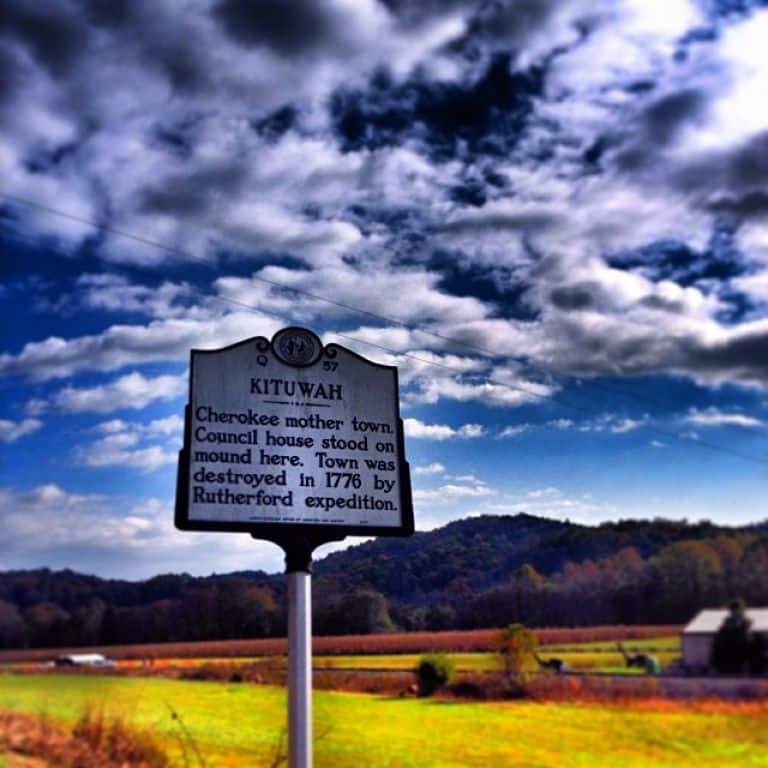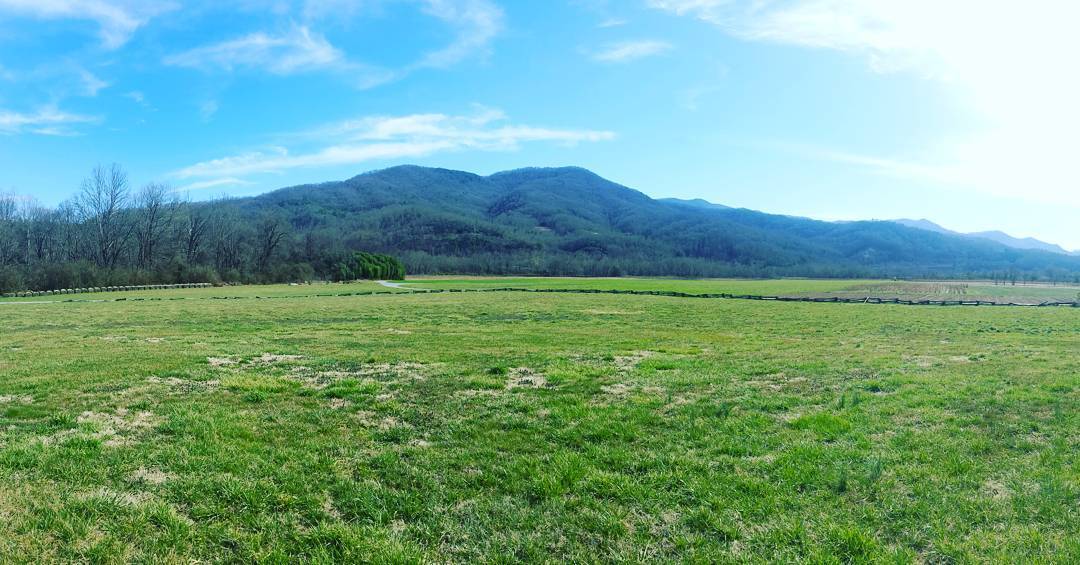
Seven miles outside of downtown Cherokee is Kituwah, the original Cherokee settlement, also known as the “Cherokee Mother Town.” Kituwah is considered by all three of the federally recognized Cherokee tribes as the place of origin for the Cherokee people. Archeologists date the site back to nearly 10,000 years ago.
Kituwah Mound was the center of the village, according to Cherokee legend. Originally, the mound was 15 to 20 feet tall, and one of the places of the “eternal flame.” In Cherokee culture, the tribal “keepers of medicine” would keep fires burning in the council houses on top of the mounds, symbolizing the presence of the Creator and the life of the town.
Kituwah Mound is still visible today. It stands about six feet tall, reduced in height after years of farming when it was not under Cherokee ownership, from 1820 to 1996. The Eastern Band of Cherokee Indians brought back the Kituwah village site in 1996 with the purchase of more than 300 acres of land, their first major land purchase in more than a century.
A SACRED PLACE
In the book Cherokee Heritage Trails Guidebook by Barbara R. Duncan and Brett H. Riggs, educator and Cherokee language specialist Marie Junaluska describes Kituwah as a very sacred place. “It’s a very peaceful place. If you ever go there, you can feel the peace. The spirit that was there a long time ago is still there,” she said.
Honoring the “mother town” was akin to honoring Selu, the Cherokee Corn Mother. Honoring mothers is a concept that has pervaded Cherokee culture. Well into the 20th century, the Cherokee operated on a matrilineal system, in which lineage is traced through the mother and maternal ancestors.






